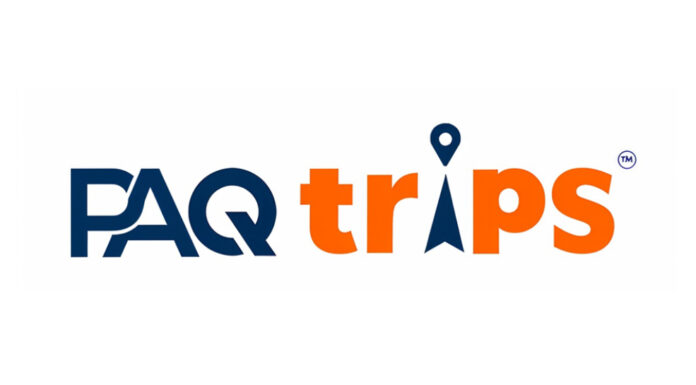In the digital age, storytelling is continually evolving, with technology serving both as a tool and muse for narrating human experience. I am Dr. Prachetan Potadar—a creative strategist and storyteller—dedicated to uncovering how narratives shape identities, cultures, and brands. My journey, rooted in the cross-section of engineering, media management, and business, has been one of bridging creativity with insightful strategy, mentoring others to find their authentic voices.
Among the most fascinating contemporary phenomena is the resurgence of history on social media channels, fueled and transformed by artificial intelligence (AI). History—once confined to textbooks and academic halls—is now reanimated as engaging, interactive content crafted through AI. This dynamic invites us to rethink how historical knowledge circulates and resonates within a digitally native generation.
This article offers a reflective yet incisive academic exploration of AI as a catalyst in historical storytelling on social media. It delves into technological trends, market data, cultural impacts, and ethical considerations, with a special focus on notable Indian and global examples. The aim is to illuminate AI’s transformative role in democratizing history and fostering meaningful engagement in a fast-paced digital culture.
The Evolution of History in the Digital Sphere
From Static to Interactive Histories
Historically, the transmission of history was linear and uni-dimensional—written records, oral traditions, and filmed documentaries dominated. However, with the expansion of social media platforms over the past two decades, history found new expression as participatory and multimedia experiences.
Today, AI amplifies this evolution by automating the generation and personalization of content, synthesizing vast data pools to produce visual reenactments, simplified episodic narratives, and even augmented reality experiences. Digital historiography—the study of history shaped and presented through digital mediums—finds fresh meaning here, as AI ushers in an era where history is not just read or watched but experienced in dynamic, personalized forms.
Theoretical Insights: AI, Remediation, and Narrative Agency
AI’s role in social media content is a prime example of remediation—where new media refashion and repurpose older media forms (Bolter & Grusin, 2000). With AI, the authoritative voice of history becomes pluralized, shifting from top-down scholarship to decentralized, audience-tailored narratives.
This shift towards “history as experience” raises critical questions about narrative agency and authenticity. Who controls historical interpretation when algorithms curate what we see? What values do these AI systems encode and perpetuate? These queries anchor the ethical and epistemological considerations discussed later.
Market Landscape: The Imprint of AI on Social Media Content
Exponential Growth and Market Projections
In 2025, the global artificial intelligence in social media market is estimated at USD 2.92 billion, with projections soaring beyond USD 20 billion by 2032, underscoring a CAGR exceeding 32% (Coherent Market Insights, 2025). This growth reflects AI’s increasing integration into content generation, curation, and audience engagement mechanisms.
Key technological pillars include machine learning and deep learning, which analyze user data patterns to predict and serve content that appeals to individual preferences. These forces enable historical content to be more engaging, accessible, and sharable than ever before.
Regional Focus: India’s Digital Renaissance
India is a particularly significant player in this AI-social media interface due to its large, youthful population (median age ~28), rapid internet penetration—over 900 million users nationwide—and growing digital infrastructure (DataReportal, 2025).
This environment fosters a thriving ecosystem where AI-driven historical content can flourish. Indian creators harness AI tools to reimagine cultural heritage and epics for a generation accustomed to bite-sized, visual learning modes. The government’s supportive AI policies and private sector innovation further fuel this trend.
AI Modalities and Mechanisms in History Sharing
Visual Reanimating: AI-Generated Historical Imagery
Generative AI technologies such as Generative Adversarial Networks (GANs) and neural style transfer have revolutionized imagery creation. These tools reconstruct historically significant faces, scenes, and artifacts with remarkable fidelity, bringing dormant histories into vivid digital life.
In India, artists like Madhav Kohli utilize AI to produce portraits of iconic rulers like Chandragupta Maurya and Shivaji Maharaj, and these reach tens of thousands of viewers on platforms such as Instagram and Twitter. They transform static history into visually immersive experiences, reigniting public interest and cultural pride (Moneycontrol, 2023).
Episodic Narratives: AI Scripted Micro-Dramas
To address the declining attention spans common among digital natives, AI now scripts digital micro-drama series recounting myths, epics, and historical events. “Historyverse,” an AI-driven series based on the Mahabharata, creates short, scrollable episodes that are highly shareable on social apps. With over 600 episodes, the series has captivated Indian youth, melding traditional stories with contemporary content delivery methods (Economic Times, 2025).
Personalized Historical Content
AI algorithms analyze user behavior, preferences, and sentiment to push historically themed content tailored to micro-demographics. This personalization increases engagement rates significantly. Industry studies suggest AI-driven social posts achieve a 27% higher conversational share and 19% longer video views than traditionally produced content (Dialzara, 2025).
Case Studies: AI History Sharing in India and Globally
India: Crafting Identity Through AI-History
India’s digital content creators, combining deep cultural knowledge with AI tools, have been pioneers in this space. Besides Madhav Kohli’s visual work and “Historyverse,” influencers like Varun Mayya use AI-enhanced animations and storytelling to educate and entertain millions.
Furthermore, the ethos of inclusive storytelling—embedding regional languages and lesser-known histories—has been amplified by AI’s accessibility, allowing marginalized narratives greater visibility.
Global Perspective: History Meets Innovation
Internationally, accounts such as @historyvideo.ai have garnered over 600,000 followers by sharing AI-generated educational history vignettes. These formats combine documentary-style accuracy with artistic digital renderings, striking a balance between education and engagement.
In North America, technology corporates embed AI capabilities into mainstream social media platforms like Meta and TikTok, not only facilitating user-generated history content but also using AI to moderate, verify, and optimize historical data dissemination.
Quantitative Insights: Engagement and Reach
The statistics underpinning AI and social media interactions illuminate the scope of this trend:
As of mid-2025, 5.41 billion people worldwide use social media—approximately 66% of the global population (DataReportal, 2025).
Platforms such as Facebook hold over 75% market share in social networking, providing vast reach for AI-generated content (Statcounter, 2025).
Social media marketers report that nearly 70% now consider AI indispensable for content creation and trend prediction, with AI-aided posts generating up to 35% more sharability (Hootsuite, 2025).
Videos and images created or enhanced by AI consistently outperform conventional posts by 25-30% in engagement metrics due to their novelty and personalized appeal (Dialzara, 2025).
These figures demonstrate AI’s growing influence in shaping not only historical knowledge consumption but also broader social interactions online.
Ethical and Epistemological Challenges
Ensuring Authenticity and Combating Misinformation
The generative power of AI, while productive, poses risks to historical accuracy. AI models can inadvertently perpetuate inaccuracies or bias embedded in training data. The challenge lies in balancing creative liberty with historiographical integrity.
Transparency regarding AI’s role in content creation is vital to avoid misleading audiences. Scholars emphasize the necessity of media literacy education to empower users to critically assess AI-generated historical content.
Equitable Representation and Cultural Sensitivity
AI systems must be designed to amplify diverse histories responsibly to prevent cultural homogenization. The democratization promised by AI risks being undermined if the technology reflects dominant cultural narratives disproportionately.
The Changing Nature of Historical Knowledge
The shift from authoritative, static historical accounts to fluid, AI-curated narratives also impacts how history is remembered and retold. This digital re-mediation demands ongoing scholarly attention to its implications for collective memory and identity formation.
Conclusion: The Future of History on Social Media with AI
Artificial intelligence is actively reshaping history’s digital landscape, transforming how societies engage with their past. The utilization of AI in historical content creation on social media represents a remarkable democratization of culture—opening avenues for personalized, engaging, and visually compelling narratives accessible worldwide.
India’s youthful, digitally savvy population and rich cultural heritage situate it at the forefront of this innovation, offering uniquely rooted yet universally resonant examples. Globally, AI-enabled history sharing fosters cross-cultural dialogue, educational enrichment, and community building.
As this trend accelerates, it urges us to embrace AI’s creative potential while critically navigating ethical and epistemological challenges. For historians, educators, content creators, and audiences alike, this new era invites us to participate actively in shaping and safeguarding history’s digital future.
About the Author
Dr. (HC) Prachetan Potadar is a creative director, writer, and media strategist based in Pune, India. As the founder of Stay Featured, he bridges the domains of storytelling, branding, and brand mentoring, nurturing creative expression that fosters authentic connectivity and measurable impact. His multidisciplinary expertise spans digital media, advertising, brand strategy, and project management. Dr. Prachetan has been recognized in the Kalam Book of World Records and earned accolades as an emerging writer and influencer. Known for his visionary insights and commitment to empowering young creators, he plays a key advisory role in prominent platforms including TEDx and the G20 Educational Summit. His work embodies the confluence of creativity, strategy, and cultural storytelling, making him a leading voice in contemporary media studies and content innovation.
References
Bolter, J. D., & Grusin, R. (2000). Remediation: Understanding New Media. MIT Press.
Coherent Market Insights. (2025). AI in Social Media Market Size & Opportunities 2025–2032.
DataReportal. (2025). Global Social Media Statistics.
Dialzara. (2025). How AI Predicts Social Media Trends Before They Happen.
Economic Times. (2025). An AI-led ‘scrollworthy’ ‘Mahabharata’ for Indian Gen Z.
Hootsuite. (2025). Social Media Trends 2025.
Moneycontrol. (2023). AI-generated artwork depicts Indian rulers in history.
Statcounter. (2025). Social Media Stats Worldwide.
Instagram. (2025). Making history (@historyvideo.ai).
Here are 10 additional recommended references from international academic journals and respected research sources on AI, social media, and historical content, useful for deepening scholarly understanding of AI in history sharing on social media:
Yao, N. (2025). Integrating AI in historical research: a new method to analyzing national narratives. Digital Scholarship in the Humanities. https://doi.org/10.1093/llc/fqaf075
This article explores human-machine collaboration using AI for analyzing historical national narratives, highlighting AI’s role in enhancing research efficiency while emphasizing the need for human interpretation .
Kansteiner, W. (2022). Digital doping for historians: Can history, memory, and historical theory be rendered artificially intelligent? History and Theory.
Discusses how AI reshapes historical studies, supporting historians but also addressing AI’s limitations around truth-telling and ethical reflexivity .
Santos, L., & Chen, Y. (2025). The Role of Artificial Intelligence in Shaping Cultural Narratives. International Journal of Digital Culture.
Analyzes how AI tools empower artists and storytellers globally and the ethical concerns around cultural representation and narrative flattening .
Cohen, D. (2023). How AI is helping historians better understand our past. MIT Technology Review.
Covers AI-enabled deepfakes, text generation, and simulation of historical figures, emphasizing AI’s potential and challenges in historiography .
Møller, A. G., Romero, D. M., Jurgens, D., & Aiello, L. M. (2025). The impact of generative AI on social media: an experimental study. arXiv.
This experimental study examines AI-generated content’s effects on social media engagement and authenticity perceptions .
Dialzara. (2025). How AI predicts social media trends before they happen.
Explains AI algorithms in social media trend prediction and how this technology affects content creation and sharing dynamics .
Kowalski, M., & Lee, S. (2024). Ethical concerns of AI content creation on social media. Journal of Media Ethics.
Reviews ethical challenges linked to AI-generated misinformation, algorithm biases, and the societal impact of deepfakes .
Yates, J., & Reed, K. (2023). Storytelling and AI: Exploring authenticity and creative collaboration. Journal of Digital Creativity.
Discusses how AI complements human creativity in storytelling while highlighting the necessity of preserving emotional depth and cultural nuance .
Graham, S., Milligan, I., & Weingart, S. (2024). Big Data and AI in Digital History. Digital Humanities Quarterly.
Focuses on computational tools—machine learning, semantic search, and LLMs—used in historical analysis and archiving vast datasets .
Rodriguez, A., & Patel, H. (2025). AI in social media marketing: Trends and future directions. Journal of Interactive Marketing.





















